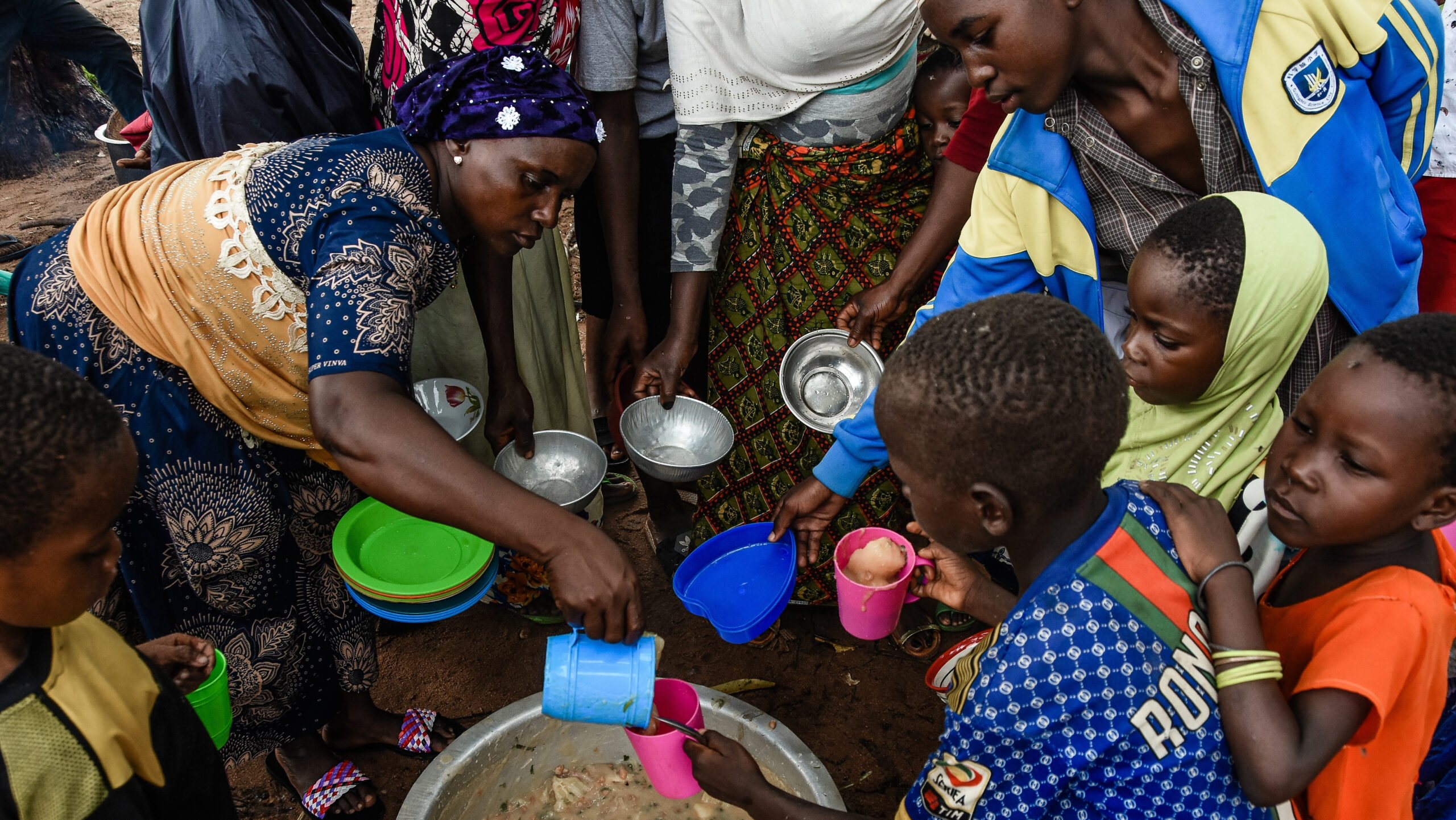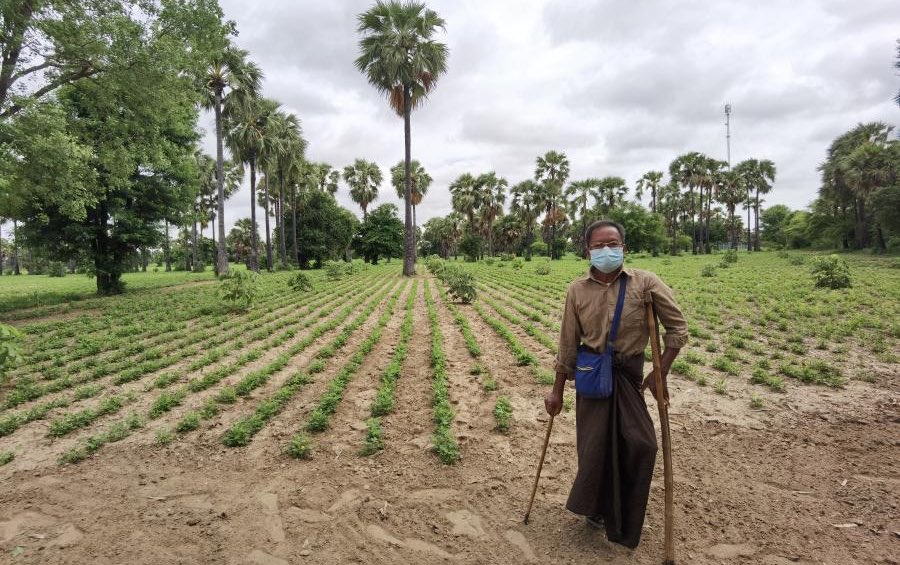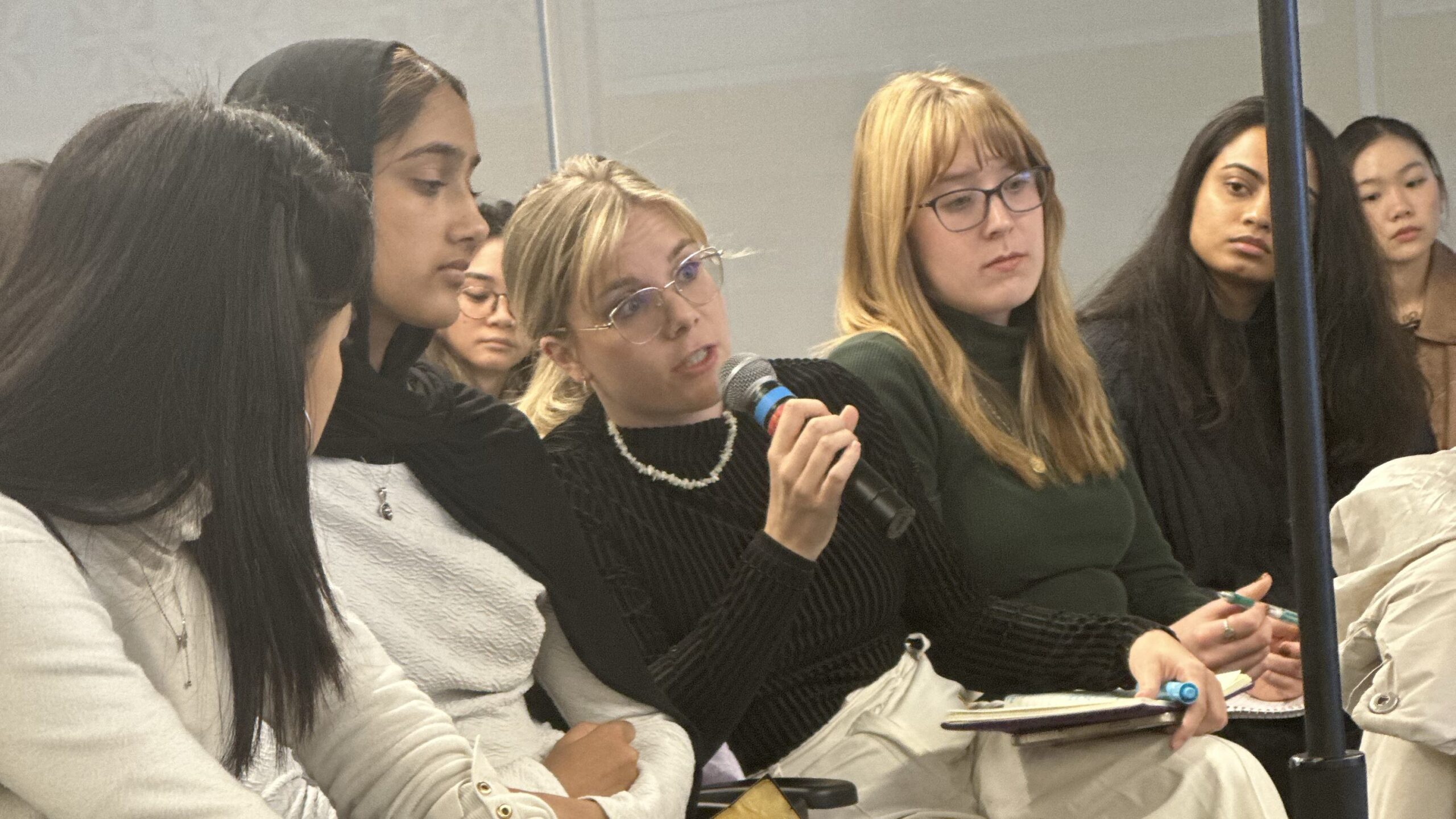Sudan has now entered its third year of armed conflict, resulting in economic collapse and a deepening humanitarian crisis. As of April 2025, over 8.6 million people have been internally displaced, and over 3 million have fled to neighboring countries. Famine has been confirmed in 10 areas and internally displaced person (IDP) camps, with 17 others at risk. GDP contracted by 20% in 2023 and 15% in 2024 alongside soaring inflation and widespread food insecurity. The conflict is now among the world’s worst humanitarian crises.
An April 14-15 Sudan Conflict Conference in Nairobi, Kenya showcased recent research on the conflict’s impact, policy dialogue, and learning from comparable conflict experiences. The event, organized by IFPRI’s Sudan Strategy Support Program and partners, brought together researchers, policy advocates, humanitarian actors, and development practitioners to examine the devastating impacts of the conflict and to chart pathways for recovery and resilience.
Research Session 1: Understanding the Origins and Dynamics of Sudan’s Conflict
Suliman Baldo, Director, Sudan Transparency and Policy Tracker, traced how the mismanagement of ethnic and regional diversity, economic marginalization, entrenched kleptocracy, and other problems contributed to Sudan’s current predicament. Urban warfare, particularly in Khartoum, has devastated critical infrastructure and set the stage for a fragmented war economy with emerging economic borders between areas controlled by the Sudanese Armed Forces (SAF) and paramilitary Rapid Support Forces (RSF), he said. In the absence of significant internal shifts or external pressure, Baldo warned, Sudan risks sliding into prolonged instability. “Recent battlefront developments are rapidly shattering the commercial and trading activities between the SAF-held and the RSF-controlled areas,” he said. Given the “alarmingly inadequate” response of the international community to the humanitarian crisis in Sudan, the onus is on Sudanese stakeholders to work together to push for an end to the war and help restore peace, stability, and a democratic transition.Both the SAF and RSF have entrenched themselves within key agricultural value chains, according to key informant interviews conducted from 2022-2024, said Hala Abushama, IFPRI Research Analyst. The groups are using control over commodities such as livestock, wheat milling, and gum arabic as a means of financing their operations. This militarization of economic sectors complicates efforts to achieve sustainable agricultural development and peace building.
Farouck Kambareesi, economic expert and former Deputy Governor, Central Bank of Sudan, outlined the conflict’s economic impacts and the country’s responses. Amid an 80% revenue collapse, the government adopted an austerity budget, amended customs rates three times, introduced new banknotes, cut the reserve ratio to 10%, and targeted 61% money supply growth. The combined effects of the SDG devaluation and customs exchange rate changes have led to a significant reduction in real income and savings, banknote shortages in many states, and higher transaction costs for cash withdrawals. All these, along with earlier difficulties in opening accounts, compound financial hardships. Postwar recovery must prioritize macroeconomic stabilization, banking sector reform, and dismantling the entrenched networks linking security forces to economic assets, he said.
Research Session 2: Food Security, Livelihoods, and Human Capital in Crisis
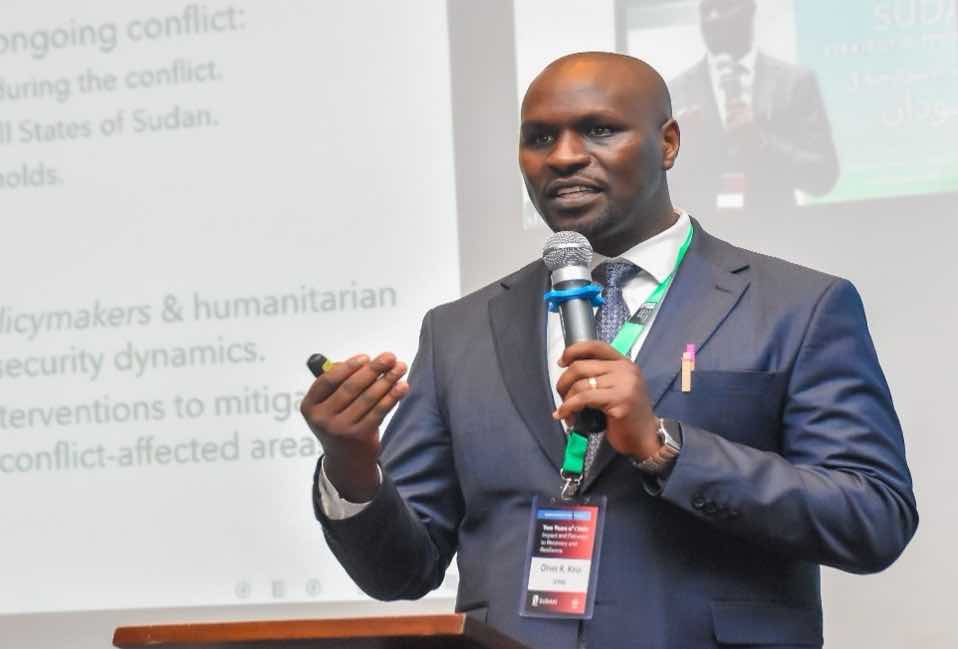
Oliver K. Kirui
Food security has worsened dramatically, with only 9%-20% of households remaining food-secure, according to data presented by Oliver K. Kirui, IFPRI Research Fellow (Figure 1). Rural areas, larger households, displaced populations, and female-headed households are particularly vulnerable. Conflict-sensitive interventions that combine emergency aid with strategies for agricultural recovery are an urgent priority, Kirui said.
Figure 1

Fredrik Svensson, Vulnerability Analysis and Mapping Officer, World Food Programme (WFP), Sudan Country Office, noted that famine conditions are projected in parts of North Darfur and the Western Nuba Mountains. Key drivers include ongoing conflict and the resulting mass displacement, high food prices, and limited humanitarian access. To avert the spread of famine, Svensson said, food and nutrition assistance must be scaled up, particularly before the rainy season, roughly between July and September.
The conflict also continues to pose severe implications for human capital. More than 10,400 schools have been closed since April 2023, depriving 19 million children of education, while over 70% of public hospitals in Khartoum have ceased functioning, said Ebaidalla Mahjoub Ebaidalla, Assistant Research Professor, Qatar University. The destruction of health care and education systems risks creating a “lost generation,” he said. Innovative solutions such as telehealth, digital learning platforms, and diaspora engagement are needed to support recovery.
Research Session 3: Economic Disruptions, Markets, and Trade in Wartime Sudan
The conflict has led to a substantial contraction in agricultural exports and severely disrupted trade relationships, particularly those with key regional partners, according to research by Lukas Kornher, Senior Researcher, German Institute of Development and Sustainability (IDOS). These problems underscore the urgent need for strategies to restore trade connectivity and rebuild export capacities to support post-conflict recovery, he said
Wheat and sorghum production have declined sharply, cereal markets face disruption, and marketing costs have skyrocketed amid conflict pressures, said Paul Dorosh, IFPRI Senior Research Fellow. Model simulations indicate that disruption of regional wheat markets due to conflict had significant adverse effects on wheat consumption. Without this conflict-induced shock to marketing costs, wheat consumption could have been 8% higher in western Sudan (assuming wheat imports were allowed to increase to meet demand at import parity prices). The analysis suggests that, in general, restoring market integration, increasing wheat productivity, and liberalizing imports could significantly boost food availability and household consumption.
An economy-wide model presented by Zuhal Elnour, Research Fellow, Humboldt University of Berlin, shows that agricultural recovery and a broad injection of working capital investments could reduce poverty and undernourishment by 2030, while cash transfers offer immediate but shorter-term relief. The study’s comparative analysis suggests that while each intervention strategy offers specific strengths, for most economic variables, effectiveness is amplified when they are delivered in combination. Cash transfers offer rapid relief to households; working capital support catalyzes private sector activity; and agricultural revitalization lays a foundation for sustainable food system recovery.
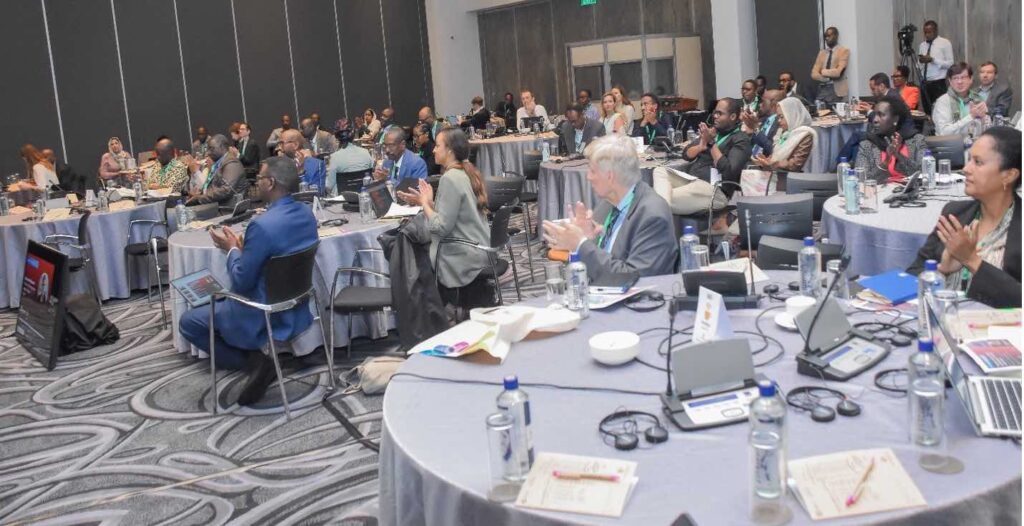
Research Session 4: Resilience and Recovery Strategies Amidst Conflict
Youssef Chaitani and Hong Pum Chung, United Nations Economic and Social Commission for Western Asia (ESCWA), warned that the protracted conflict, humanitarian dependency, and environmental risks present complex risks for Sudan. Using the Arab Risk Monitor’s analytical framework, they said that Sudan faces risks including conflict escalation; climate vulnerability (severe flooding, drought, and desertification that are worsening food and water insecurity); economic deterioration (falling GDP, very high inflation, and widespread unemployment); and weak governance (a breakdown in law, service delivery, and social protection).
Despite the challenges, civilians are working to adapt to Sudan’s evolving war economy, according to Raga Makawi, Researcher, London School of Economics, and Muzan Alneel, Researcher and Managing Director, Innovation, Science and Technology for People-Centered Development (ISTinaD) Research Center. Using a civic resilience framework, they highlighted the modes by which civic movements adapt through innovative income generation activities and community-based emergency responses, showcasing how grassroots resilience initiatives and local economic adaptations could provide the foundation for future post-war reconstruction.
Cash transfers offer a key way to support populations facing shocks. According to Kibrom Abay, IFPRI Senior Research Fellow, a recent randomized controlled trial experiment in Sudan focusing on urban households’ livelihoods showed that digital transfers improved food security, mental health, and subjective well-being even amid active conflict (Figure 2). The results highlight the effectiveness of innovative delivery mechanisms for humanitarian aid, he said.
Figure 2

Note: FIES: Food Insecurity Experiences Scale
Session Five: Programmatic Responses of Implementing Agencies
Joseph Shalhoub, Food Security and Livelihood Cluster (FSLC) Coordinator, Sudan, reported that in 2024, the FSLC reached 13 million individuals (out of a goal of 16.5 million) across all 18 states with emergency food aid and agricultural livelihood support, prioritizing those in Integrated Food Insecurity Phase Classification (IPC) Phase 3 (Crisis) and above. The FSLC faced immense challenges including ongoing conflict, access restrictions, and funding shortages, though many in conflict-affected zones remain underserved.
The Cash Consortium of Sudan (CCS) set out to assist 1.5 million people through cash transfers, support for local producers and businesses, and community strengthening, according to Gabrielle Fox, CCS Chief of Party. However, due to underfunding, the organization was able to reach only 250,000 people. CCS is adapting by revising and reconsidering which transfer modalities are more feasible depending on the existing currency change (banknote changes) and liquidity shortages.
Arvind Kumar, Head of Recovery and Resilience, United Nations Development Programme (UNDP)-Sudan, positioned the conflict as part of a broader socioeconomic crisis exacerbated by energy shortages, irrigation failures, and health burdens. UNDP’s plan includes engaging communities, reinforcing formal institutions, and promoting data-driven planning with partners such as IFPRI. Efforts are underway to work more with the private sector, he said, especially to enhance value chains of key commodities like gum arabic.
The WFP is recalibrating its strategies to match local needs, said Nigist Abebe, Head of Vulnerability Analysis and Mapping (VAM), WFP-Sudan. While continuing traditional aid in accessible areas, the organization is piloting innovative models in high-risk zones, such as a business-to-business system for voucher-based distribution in Zamzam. In urban centers such as Khartoum and Al Jazirah, WFP has launched a self-registration system for direct cash transfers.
The UN Food and Agriculture Organization (FAO) adapted quickly to severe operational disruptions of an unprecedented crisis—particularly in Khartoum, said Adam Yao, FAO Deputy Country Representative, Sudan. Phuong Nguyen, Senior Liaison, UNICEF-Sudan, detailed the organization’s support for education recovery, with 3 million children returning to school in 2025. UNICEF also introduced youth-led initiatives, trained facilitators, and partnered with CBOs to build safety nets. IDP camps, meanwhile, have many urgent needs, said Katrien Denys, Partnerships and New Initiatives Manager, Mercy Corps-Sudan. Mercy Corps’ approach includes capacity building, deploying digital tools, and supporting CCS. Extensive data collection—including market assessments and food system analysis using remote sensing—is informing planning for the upcoming harvest season, roughly between October and the end of November.
Session Six: Programmatic Responses by Donors
“We should strive to better support those in need, work more effectively to bring all parties to the negotiating table, and fully recognize and build upon the resilience of the Sudanese people,” said Ed Barney, Human Development Advisor, UK Foreign, Commonwealth & Development Office (FCDO)-Sudan. He called for greater innovation and participatory approaches, emphasizing the collaboration of international development agencies with local academic institutions and national civil society organizations to enhance local alignment and knowledge-sharing.
Felix Volkmar, Portfolio Manager, Kreditanstalt für Wiederaufbau (KfW), the German state-owned investment and development bank, outlined four pillars guiding humanitarian assistance: Active engagement in conflict areas, multisectoral approaches, long-term planning, and coordination with government structures. KfW supports small- and medium-sized enterprises (SMEs) through its Challenge Funds, promoting local economic resilience and reducing political interference.
The World Bankhas established a $500 million Multi-Donor Trust Fund in Sudan focused on health, education, and social protection, said Yoichiro Ishihara, World Bank Country Manager, Sudan. The fund supports four active projects and aims to scale up through adaptive programming, enhanced targeting, private sector partnerships, and inclusive recovery. Funds are increasingly directed to implementing agencies to ensure operational efficiency.
Session Seven: Sudan-Led and Regional Solutions & Learning from Other Conflicts
An IFPRI-supported study assessing $432 million in damages to agro-industrial sites in Greater Khartoum shows the need for private sector engagement and state-backed financial recovery mechanisms, said Ammar Ibrahim, Senior Consultant, Renaissance Centre for Consultancy, Capacity Building and Development.
Wheat supply chains, transportation, and distribution networks have collapsed, said Mohamed Elnasir Elsayed, CEO, Al Sayed Mills Company. Restoring these and reconnecting them with international trade networks will require security guarantees and financing, he said.
Brian D’Silva, Advisor, CIMMYT Sustainable Agrifood Systems Approach for Sudan (SASAS) Program, advocated a systems-based food security approach linking farmers to infrastructure, markets, and consumers. He emphasized investing in sustainable, locally anchored solutions to drive long-term recovery.
Imposing externally-designed solutions often fails to align with Sudan’s social and economic realities and risks deepening the country’s existing vulnerabilities, said Muzan Alneel, Research Fellow, Transnational Institute. Sustainable progress in Sudan must be rooted in locally informed and inclusive approaches, she said.
“Sudan’s youth are not just survivors—they are builders of a more resilient and innovative future,” said Khansa Alhag, Managing Partner, 249 Start-ups; a Sudanese youth entrepreneurship social enterprise. Young entrepreneurs have adapted during the conflict by providing digital services and local food processing, she said, underscoring the resilience of youth-led businesses. Sudan needs increased investment in start-ups and SMEs, along with policy reforms to support tech-driven solutions for post-conflict recovery, she said.
Closing reflections
The two-year anniversary of Sudan’s conflict marks a pivotal moment for renewed collective commitment to peace and recovery, Steven Were Omamo, Director, IFPRI Development Strategies and Governance Unit, said in his first-day closing remarks. Impartial, evidence-based research is crucial for informing recovery efforts, the need for sustained international engagement, and the centrality of Sudanese voices in shaping solutions, Omamo said. Recovery should not aim to rebuild what existed before the conflict but to lay the foundations for more inclusive, resilient, and equitable systems. Conference participants, he said, should aim to remain connected, committed, and hopeful as they work alongside the people of Sudan on the difficult but necessary path to recovery and transformation.
Tarig Rakhy and Shima Mohamed are Research Analysts with IFPRI’s Development Strategies and Governance (DSG) Unit; Khalid Siddig is a DSG Senior Research Fellow and Leader of IFPRI’s Sudan Strategy Support Program; Hala Abushama is a DSG Research Assistant; Oliver Kiptoo Kirui is a DSG Research Fellow; Paul A. Dorosh is a Senior Research Fellow with IFPRI’s Foresight and Policy Modeling Unit.
This work was supported by the CGIAR Science Programs on Policy Innovations and Food Frontiers and Security.





